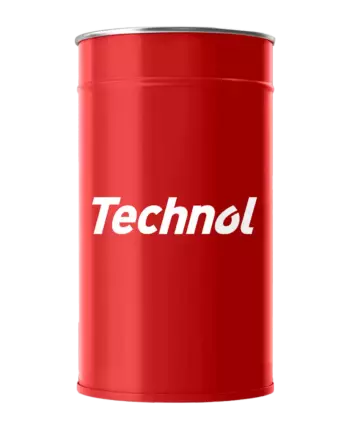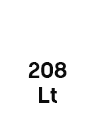Slideway Oil
What Is Slideway Oil and Why Is It Used?
Slideway oils are specially formulated lubricants designed for guideways, transmission systems, reducers, and industrial machinery. Their main purposes are to:
-
Reduce friction in moving mechanisms
-
Provide protection against wear
-
Support long-lasting operation of components
-
Minimize heat build-up
Thanks to these properties, slideway oils are widely used in automotive transmissions, agricultural machinery, construction equipment, and industrial machines.
Main Functions of Slideway Oils
-
Reduces friction – ensures smooth and efficient movement of sliding surfaces.
-
Corrosion protection – prevents metal surfaces from rusting.
-
Thermal stability – maintains performance under high temperatures.
-
Mechanical durability – ensures stability even under heavy-duty conditions.
Types of Slideway Oils
Mineral Slideway Oils
-
Made from conventional base oils
-
Budget-friendly option
-
Suitable for light to medium-duty conditions
Synthetic Slideway Oils
-
High purity and molecular stability
-
Operates efficiently across a wide temperature range
-
Ideal for heavy-load and high-speed systems
Semi-Synthetic Slideway Oils
-
Blend of mineral and synthetic oils
-
Balanced choice between cost and performance
-
Commonly used in medium-load systems
SAE Viscosity Grades and Selection Tips
Slideway oils are categorized by SAE viscosity grades such as 80W-90, 85W-140, and 75W-140:
-
80W-90 – for daily-use transmissions and sliding systems under normal conditions
-
85W-140 – for heavy-duty trucks and industrial machinery
-
75W-140 – provides excellent protection against extreme temperatures and speed differences
Choosing the correct SAE grade is crucial for the long life of mechanisms.
API and GL Standards
Slideway oils are classified according to API GL-4 and GL-5 standards:
-
GL-4 – for medium-load transmissions and gearboxes
-
GL-5 – for high-load, high-pressure gear systems
Industrial and Transport Applications
-
Automotive transmissions and differential systems
-
Agricultural machinery (tractors, harvesters, etc.)
-
Construction equipment (excavators, bulldozers, cranes)
-
Industrial reducers and machinery
Advantages of Technol Slideway Oils
-
High-quality base oils and additives
-
Strong protection against wear and corrosion
-
Long service intervals
-
Formulated to suit Azerbaijan’s climate conditions
How to Choose Slideway Oil in Azerbaijan
-
Follow equipment manufacturer recommendations
-
Check SAE viscosity grade and API standard
-
Consider working conditions – temperature, load, speed
-
Choose reliable brands like Technol
Frequently Asked Questions
What is the difference between slideway oil and engine oil?
-
Engine oil reduces friction in cylinders and valves, while slideway oil is specifically designed for sliding and guideway systems.
How often should slideway oil be changed?
-
Depending on usage, it is recommended every 20,000 – 40,000 km.
Which slideway oils are most commonly used in Azerbaijan?
-
SAE 80W-90 and SAE 85W-140 are the most frequently used.
Where can Technol slideway oils be purchased?
-
Available from official distributors and auto-lubricant stores in Azerbaijan.
Showing all 8 results
What Is Slideway Oil and Why Is It Used?
Slideway oils are specially formulated lubricants designed for guideways, transmission systems, reducers, and industrial machinery. Their main purposes are to:
-
Reduce friction in moving mechanisms
-
Provide protection against wear
-
Support long-lasting operation of components
-
Minimize heat build-up
Thanks to these properties, slideway oils are widely used in automotive transmissions, agricultural machinery, construction equipment, and industrial machines.
Main Functions of Slideway Oils
-
Reduces friction – ensures smooth and efficient movement of sliding surfaces.
-
Corrosion protection – prevents metal surfaces from rusting.
-
Thermal stability – maintains performance under high temperatures.
-
Mechanical durability – ensures stability even under heavy-duty conditions.
Types of Slideway Oils
Mineral Slideway Oils
-
Made from conventional base oils
-
Budget-friendly option
-
Suitable for light to medium-duty conditions
Synthetic Slideway Oils
-
High purity and molecular stability
-
Operates efficiently across a wide temperature range
-
Ideal for heavy-load and high-speed systems
Semi-Synthetic Slideway Oils
-
Blend of mineral and synthetic oils
-
Balanced choice between cost and performance
-
Commonly used in medium-load systems
SAE Viscosity Grades and Selection Tips
Slideway oils are categorized by SAE viscosity grades such as 80W-90, 85W-140, and 75W-140:
-
80W-90 – for daily-use transmissions and sliding systems under normal conditions
-
85W-140 – for heavy-duty trucks and industrial machinery
-
75W-140 – provides excellent protection against extreme temperatures and speed differences
Choosing the correct SAE grade is crucial for the long life of mechanisms.
API and GL Standards
Slideway oils are classified according to API GL-4 and GL-5 standards:
-
GL-4 – for medium-load transmissions and gearboxes
-
GL-5 – for high-load, high-pressure gear systems
Industrial and Transport Applications
-
Automotive transmissions and differential systems
-
Agricultural machinery (tractors, harvesters, etc.)
-
Construction equipment (excavators, bulldozers, cranes)
-
Industrial reducers and machinery
Advantages of Technol Slideway Oils
-
High-quality base oils and additives
-
Strong protection against wear and corrosion
-
Long service intervals
-
Formulated to suit Azerbaijan’s climate conditions
How to Choose Slideway Oil in Azerbaijan
-
Follow equipment manufacturer recommendations
-
Check SAE viscosity grade and API standard
-
Consider working conditions – temperature, load, speed
-
Choose reliable brands like Technol
Frequently Asked Questions
What is the difference between slideway oil and engine oil?
-
Engine oil reduces friction in cylinders and valves, while slideway oil is specifically designed for sliding and guideway systems.
How often should slideway oil be changed?
-
Depending on usage, it is recommended every 20,000 – 40,000 km.
Which slideway oils are most commonly used in Azerbaijan?
-
SAE 80W-90 and SAE 85W-140 are the most frequently used.
Where can Technol slideway oils be purchased?
-
Available from official distributors and auto-lubricant stores in Azerbaijan.
What is industrial oil?
Industrial oils are special fluids used in various industrial sectors that ensure the proper operation of machines and equipment, reduce friction, protect against corrosion, and balance heat. These oils are essential for both heavy industry and production equipment.
Why is industrial oil important?
-
Ensures the longevity of equipment
-
Minimizes energy consumption by reducing friction
-
Prevents overheating and wear
-
Reduces technical problems and maintenance costs
-
Increases system stability and performance
What are the main types of industrial oils?
Industrial oils are classified based on their functions and areas of use as follows:
Hydraulic Oils
Application: Presses, CNC machines, forklifts, industrial robots
Function: Transmission of pressure and maintaining stability in hydraulic systems
Compressor Oils
Application: Air compressors, refrigeration systems
Function: Lubrication and cooling of compressors
Gear Oils
Application: Industrial gearboxes, mechanical transmissions
Function: Lubrication of gears, reduction of friction and heat
Product suggestion: Technol Gear Oil EP 90
Turbine Oils
Application: Power plants, steam and gas turbines
Function: Heat transfer and pressure balancing
Heat Transfer Oils
Application: Heating systems, process ovens
Function: Heat transfer at high temperatures
Product suggestion: Technol AZURIT 32
Usage Guidelines for Industrial Oils
-
Correct type selection: Use the type specified in the technical documentation of the equipment
-
Clean systems only: Clean the system of contaminants before adding oil
-
Proper dosage: Excessive oil can lead to operational issues
-
Timely replacement: Expired oils can damage the system
Storage Conditions
-
Store in a dry and cool place (ideally between +5°C and +25°C)
-
Protect from direct sunlight
-
Containers must be tightly sealed
-
Keep away from moisture and dust
Industries suitable for industrial oil use:
-
Construction machinery (excavators, bulldozers)
-
Factory and plant equipment
-
Automatic transmissions and robots
-
Heating and power stations
Boost performance with Technol industrial oils!
Technol industrial oils are produced in accordance with international standards. The products are ISO, DIN, and API certified and are suitable for both heavy and light industrial equipment.



